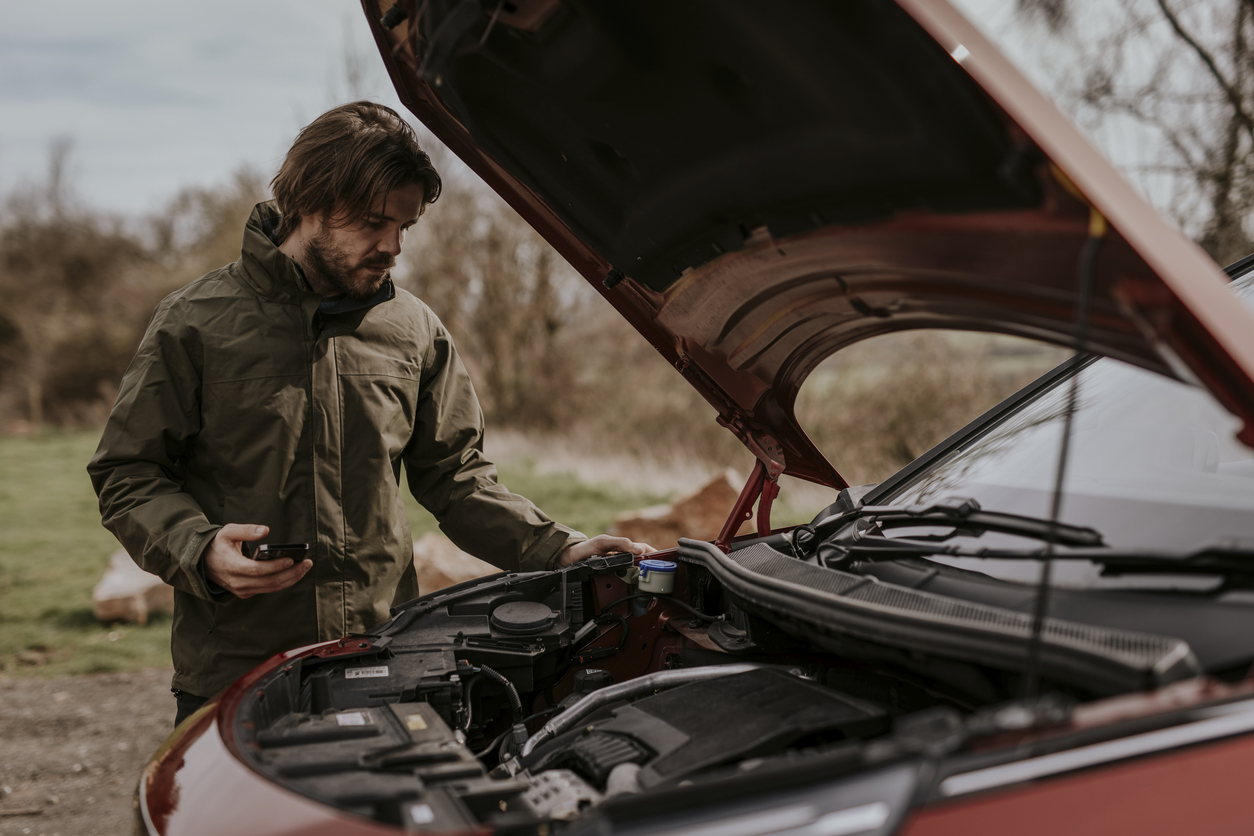Emergency Car Repairs: Common Issues and How to Find Help Fast
Learn about common emergency car repairs, how drivers can find help quickly, and how garages can stay ready for urgent repairs with AutoChain's digital tools.

Emergency car repair scenario showing a mechanic working on a vehicle
Emergency Car Repairs: Common Issues and How to Find Help Fast
Car trouble never waits for the right moment. Whether it's a dead battery, brake failure, or steering issues, emergency car repairs often strike without warning — and when they do, both drivers and service providers need to act fast.
In this guide, we'll cover:
- What counts as an emergency car repair
- The most common urgent repair types
- How drivers can find help quickly
- How garages can prepare and respond effectively
- How AutoChain supports both sides in these high-pressure moments
What Is Considered an Emergency Car Repair?
Emergency car repairs are unexpected issues that affect the immediate safety, drivability, or legal compliance of a vehicle. These often happen without warning and can leave a driver stranded or unsafe.
Common examples include:
- Brake failure or worn pads
- Steering or suspension breakdown
- Dead battery or faulty ignition
- Radiator or cooling system leaks
- Broken fan belts or serpentine belts
- Blown tyres or flat tyres without a spare
These aren't "fix it when you get a chance" jobs — they're fix it now problems.
3 Common Types of Emergency Car Repairs
1. Brake System Failures
When brakes start grinding, feel spongy, or fail to respond, the vehicle becomes a hazard. Garages must act fast to:
- Replace worn brake pads
- Repair damaged brake lines
- Bleed the brake system
- Check brake fluid levels
Regular maintenance helps, but sudden wear or missed services often lead to brake-related emergencies.
2. Ignition & Battery Issues
Cars that won't start due to a dead battery or faulty starter can leave drivers stranded — sometimes in dangerous places. Emergency ignition system repairs often include:
- Jump-starting or replacing batteries
- Swapping out a failed ignition coil or spark plugs
- Diagnosing a faulty starter motor
Mobile mechanics are especially helpful here — and drivers need fast access to trusted providers.
3. Steering or Suspension Failures
If a car starts pulling to one side or the steering feels loose or unresponsive, it's a serious issue. Garages may need to:
- Replace tie rods, ball joints, or power steering pumps
- Repair steering racks
- Realign wheels and check fluid levels
Steering failures are high-priority jobs and should never be delayed.
What Should Drivers Do in an Emergency?
If your car breaks down or becomes unsafe to drive, follow these steps:
- Pull over safely and put on your hazard lights
- Call for roadside assistance or a mobile mechanic
- Avoid driving further — doing so may make repairs worse or void warranties
- Check AutoChain for trusted garages and service providers nearby
AutoChain helps drivers connect with verified garages, view their real-time availability, and get emergency updates via the app — no need to chase phone calls or search Google in a panic.
How Garages Can Stay Ready for Urgent Repairs
Emergency repairs can be chaotic, especially for busy garages. Here's how to stay efficient:
- Have a real-time scheduling system so you can take urgent bookings
- Use digital job tracking to stay on top of emergency diagnostics and approvals
- Offer mobile or 24/7 support if possible — especially battery, tyre, and brake-related services
- Keep service histories digital to assess recurring issues quickly
AutoChain helps garages handle emergency jobs more smoothly with:
- Digital vehicle histories for faster diagnostics
- AI-powered reminders to prevent future issues
- In-app messaging and instant job updates
- Easy customer approval for additional work
Why Emergency Repair Records Matter
Logging emergency repairs isn't just about garage management — it's also about building trust.
When drivers can see their full vehicle history, including urgent repairs, it:
- Builds transparency
- Increases resale value
- Helps future garages understand past issues
- Gives drivers peace of mind
With AutoChain, both garages and drivers get a permanent record of every job — big or small.
Final Thoughts
Emergency car repairs are stressful — but with the right tools and systems in place, they don't have to be chaotic. Whether you're a driver in need or a garage on call, being prepared is everything.
🔧 For drivers: Use AutoChain to find trusted service providers, even in emergencies.
🛠 For garages: Stay ready for urgent repairs with digital tools that keep you connected and efficient.
👉 Register your garage today
👉 Stay in the loop with AutoChain updates
About the Author: Louis Barnes is the Founder & CEO of AutoChain, bringing years of experience in automotive technology and digital service management to help revolutionize how drivers and service providers connect and manage vehicle maintenance.